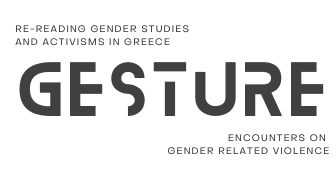Συγγραφέας
Harnoncourt Julia
Τίτλος
Forms of Unfree Labour in Brazil: Dealing with Racism and Racialisation in Amazonian Agriculture
Περιοδικό
Historein: A review of the past and other stories
Τεύχος
19(1)
Έτος
2020
Σύνδεσμος
https://doi.org/10.12681/historein.18612
Περίληψη (Συγγραφέα)
Unlike many other countries, the Brazilian state has created institutions and actions against unfree labour. In addition, unfree labour is a topic that appears in popular media as well as in scientific research. Poverty is generally attributed as the only factor making people vulnerable to the promises of labour recruiters, while the intersection between class and race is denied. In this article, which takes the Brazilian example, racism is seen as a structural element of unfree labour. Two factors play a big role in this intersection: first, structural racism and, second, racism as a theory of legitimation. As regards the first, imagined races influence one’s chances of having a good education as well as lead to segregation in the job and housing markets, etc. Black people in Brazil are more likely to be poor and have lower chances of upward mobility. As these structures are also mirrored in unfree labour formation, most of unfree labourers in Brazil are black, even though skin colour does not constitute a factor for labour recruiters or estate owners in choosing labourers. As regards the second, when poor people are racialised, they are ascribed specific characteristics. These mostly legitimise their subordinated position as well as their poverty. In Brazil, it could be argued that the category of the peão de trecho (migrant labourer) has been racialised. This group of subaltern labourers are seen as totally irrational people who do not possess the ability to plan their future, but who could be, with the correct guidance, potentially good labourers. Therefore, the exploitation of the peões de trecho is attributed to their characteristic traits and not to labour relations. Additionally, structural factors – as, for example, the lack of access to basic resources – are negated, making poverty a problem of merit and not of chances. Using the example of unfree labour in Brazilian agriculture, this article presents racism and racialisation as factors structuring the labour market as a whole.
Λέξεις-Κλειδιά (Συγγραφέα)
unfree labour, Brazil, agriculture
Ετικέτες
Κοινωνική καταπίεση – περιορισμοί, Ανισότητες και διακρίσεις στην εργασία, ρατσισμός, αρρενωπότητα
Επιστημονικό Πεδίο
Ιστορία
Παρατηρήσεις
Ειδικό Τεύχος “Global Labour History: Perspectives from East to West, from North to South”. Επιμέλεια: Δήμητρα Λαμπροπούλου, Λήδα Παπαστεφανάκη, Νίκος Ποταμιάνος.
Βιβλιογραφική Αναφορά
Harnoncourt, J. (2020). Forms of Unfree Labour in Brazil: Dealing with Racism and Racialisation in Amazonian Agriculture. Historein: A review of the past and other stories, 19(1); https://doi.org/10.12681/historein.18612
